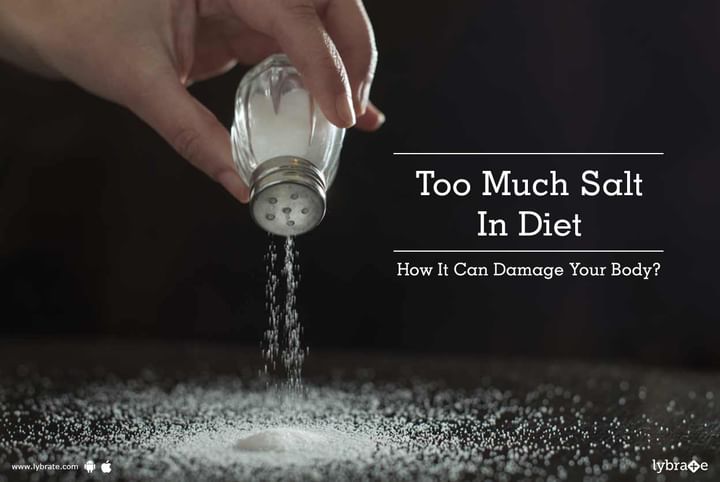Too Much Salt In Diet - How It Can Damage Your Body?
Around 40% of adults all over the world suffer from hypertension, and many may not know that too much of salt in the diet is the leading cause of developing high blood pressure. Recent studies from the Dietary Approaches to stop hypertension have shown the advantages of taking a lower amount of salt. But the real problem is that most people find salt to be tasteful just like sugar, and this tends to cast its harmful effects on overall health.
What happens to the body when you take too much of salt?
Salt contains sodium, and the kidneys find it difficult to maintain their optimum function when there is an excessive amount of sodium in the bloodstream. When sodium starts to accumulate, the body holds back water for diluting the sodium which enters the blood vessels thereby, increasing the volume of blood in the stream. When this happens, the heart has to overwork, and more pressure will be exerted in the blood vessels. With the passage of time, the excess amount of pressure would stiffen the blood vessels which would pave the way for stroke, heart attack or even heart failure.
What are the signs and symptoms of taking too much sodium?
Most people are generally unaware that there is an excessive salt intake and hence could be dangerous. Therefore, it is important to look for signs that your body is pleading to reduce the consumption of salt.
- You start feeling very thirsty: When you eat foods with high amount of sodium such as chips, pepperoni pizza, and ketchup, you are likely to feel dry. This is because of the high amount of sodium that troubles the balance of fluid in the body which makes you crave for water so that it can restore the salt balance.
- Your body starts to swell at strange places: You may feel bloated in the morning when you take too much of salt. This phenomenon is termed as edema which means swelling of extra fluid in the tissues of the body.
- You may develop stomach ulcers: Taking too much sodium is associated with stomach ulcers as well as cancers in mammals according to the recent journal Infection and Immunity. Even though more research is required, there is no harm in reducing the amount of salt in the diet and enjoy a healthy life.
Research also indicates that reducing the amounts of sodium can lower death rate over the long term. Hence, it is advisable to stick to the recommended amount of 2300mg which is equivalent to one teaspoon of salt per day to lead a healthy life. If you wish to discuss any specific problem, you can consult a General Physician.



+1.svg)
